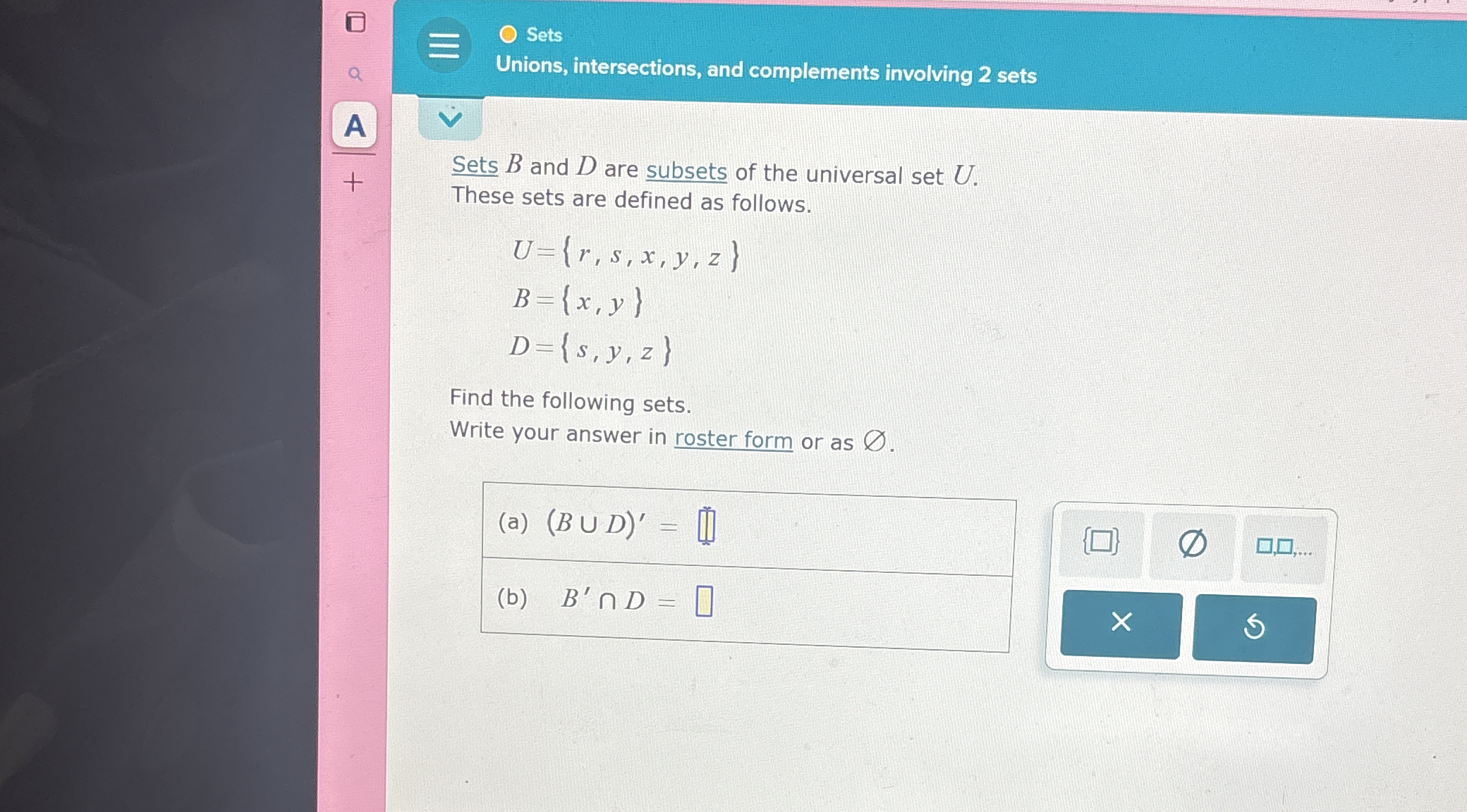Find the sets $(B \cup D)'$ and $B' \cap D$, given $U = \{r, s, x, y, z\}$, $B = \{x, y\}$, and $D = \{s, y, z\}$. Write your answer in roster form or as the empty set $\emptyset$.

Understand the Problem
The question asks us to find the sets $(B \cup D)'$ and $B' \cap D$, given the sets $U = {r, s, x, y, z}$, $B = {x, y}$, and $D = {s, y, z}$. We need to provide the answers either in roster form (listing the elements) or as the empty set $\emptyset$.
Answer
(a) $(B \cup D)' = \{r\}$ (b) $B' \cap D = \{s, z\}$
Answer for screen readers
(a) $(B \cup D)' = {r}$ (b) $B' \cap D = {s, z}$
Steps to Solve
- Find $B \cup D$ The union of two sets contains all elements that are in either set.
$B \cup D = {x, y} \cup {s, y, z} = {s, x, y, z}$
-
Find $(B \cup D)'$ The complement of a set contains all elements in the universal set that are not in the set. Since $U = {r, s, x, y, z}$ and $B \cup D = {s, x, y, z}$, $(B \cup D)' = {r}$
-
Find $B'$ The complement of B contains all elements in the universal set that are not in B. Since $U = {r, s, x, y, z}$ and $B = {x, y}$, $B' = {r, s, z}$
-
Find $B' \cap D$ The intersection of two sets contains only the elements that are in both sets. Since $B' = {r, s, z}$ and $D = {s, y, z}$, $B' \cap D = {s, z}$
(a) $(B \cup D)' = {r}$ (b) $B' \cap D = {s, z}$
More Information
The complement of a union is the intersection of the complements. $(B \cup D)' = B' \cap D'$. Likewise, the complement of an intersection is the union of the complements. $(B \cap D)' = B' \cup D'$.
Tips
A common mistake is to confuse the union and intersection operations. Remember that the union includes all elements from both sets, while the intersection includes only the elements that are common to both sets. Also, make sure to refer back to the universal set when finding the complement of a set.
AI-generated content may contain errors. Please verify critical information